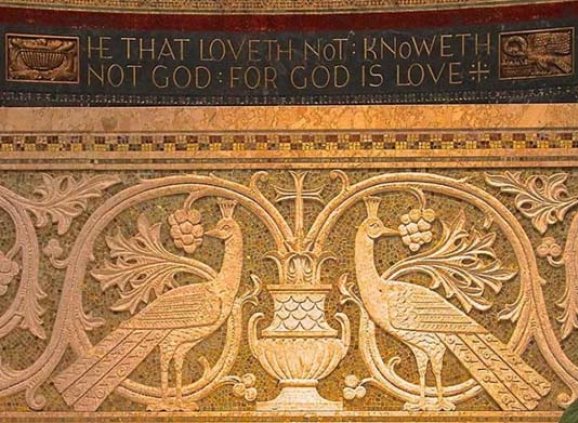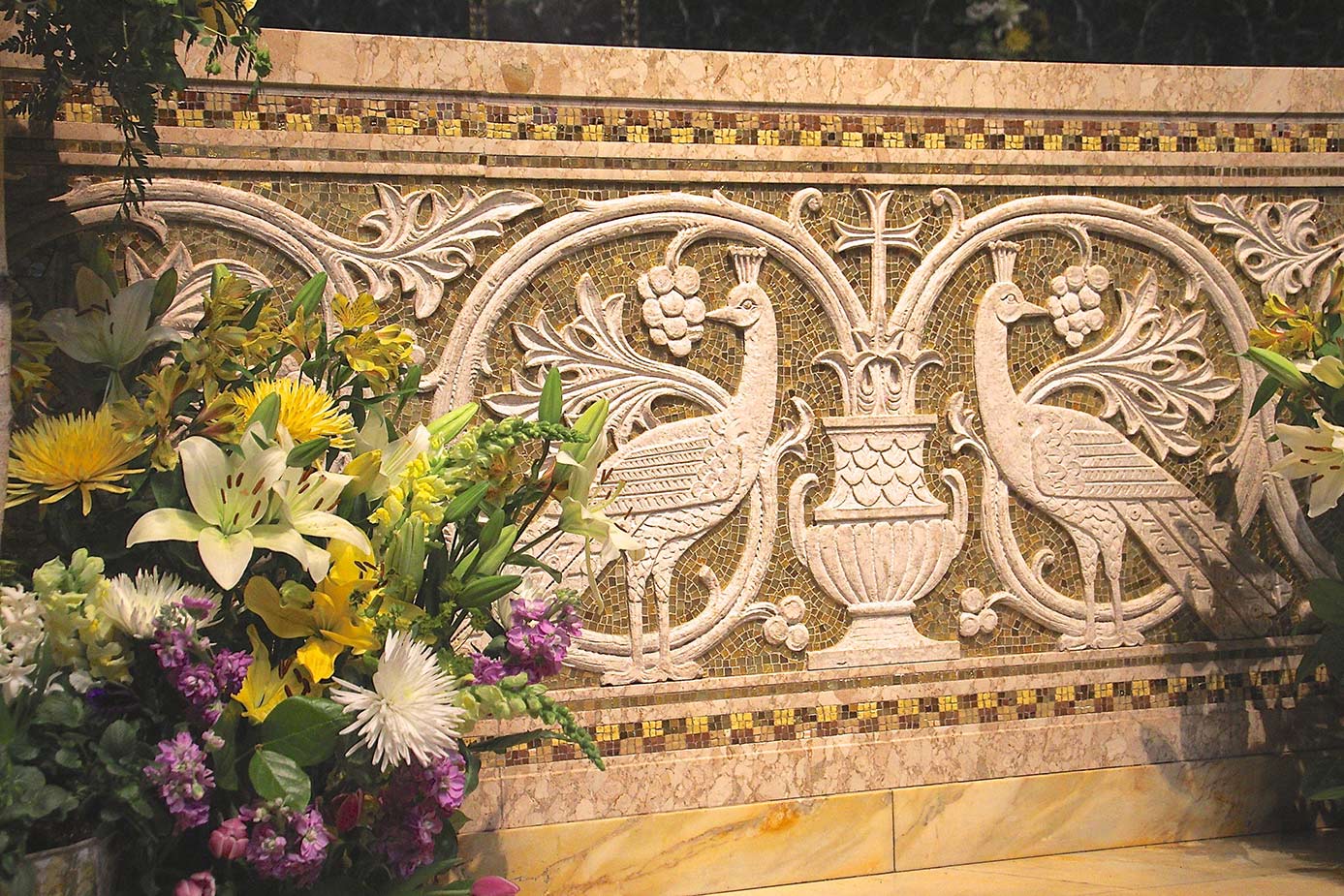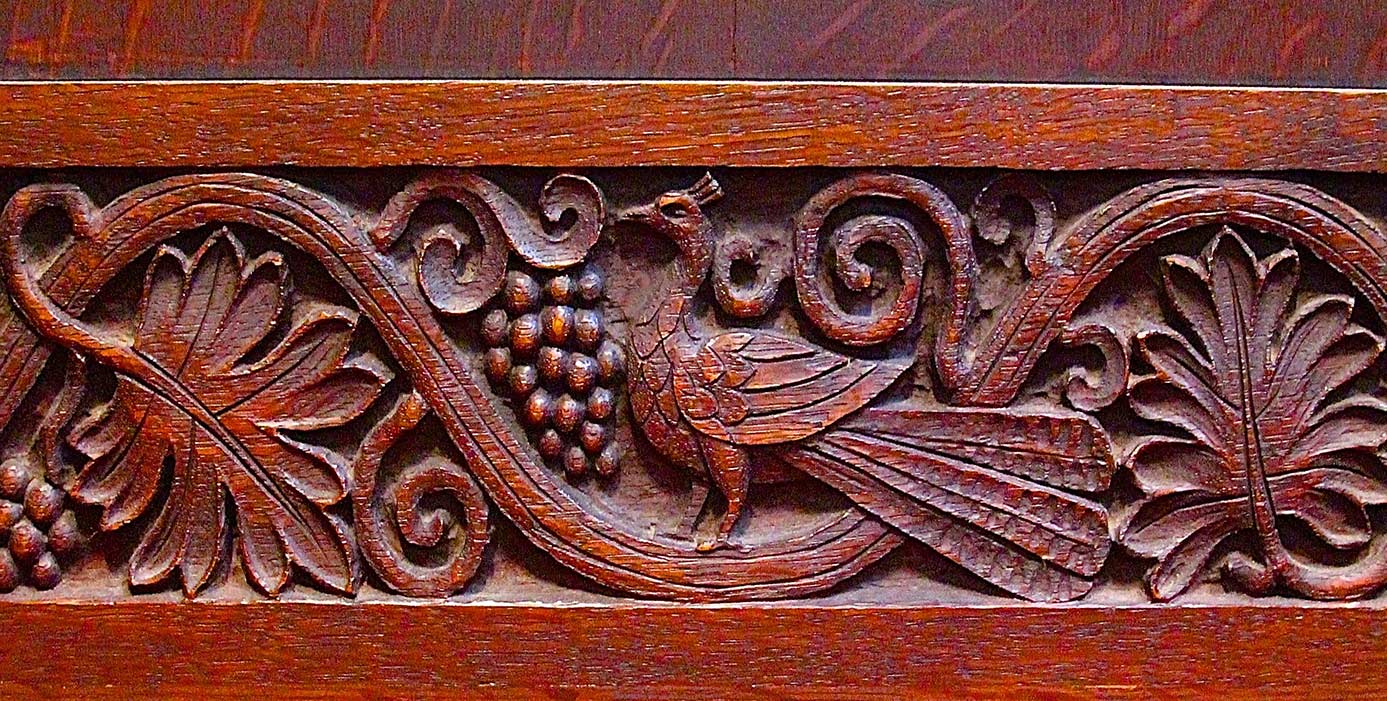
- Education Forums
Flora & Fauna of Trinity: Peacocks

Parishioners Beverly Fisher Crawford and Peter Smiledge have collaborated on a new series for Trinity's blog. Through evocative words and stunning images, they invite us to discover, examine, and meditate on the plant and animal imagery in Trinity Church. This week, they look at peacocks...
One of the central and most dramatic of the natural images in Trinity Church is the pair of peacocks on the western face of the altar. As the centerpiece of the 1938 McGinnis and Walsh redesign of the chancel, the marble and mosaic altar is decorated with a relief image of two peacocks flanking a chalice from which a grape vine spreads. Look carefully. The peacocks appear to be eating the grapes.

Because today the peacock represents vanity and pride, this perhaps seems an odd choice. What was the intent here? There was an ancient belief that the flesh of the peacock had restorative powers and did not decay after death. The peacock, it was said, could shed its feathers only to have them replaced by a new, even more brilliant display. Accordingly, early Christians adopted the peacock as a representation of renewal, resurrection, and eternal life - and at times even as a symbol for Christ Himself.
A careful look overhead in the chancel vaulting reveals four faintly visible gilt peacocks which echo this motif.

Where do you think we found the smaller peacock carved in oak?
Trinity pilgrims to the Holy Land could not ignore the peacock images they encountered in places such as the Church of the Annunciation in Nazareth and in the Church of the Transfiguration on Mt. Tabor.
- January 2024
- December 2023
- November 2023
- October 2023
- September 2023
- June 2023
- May 2023
- April 2023
- March 2023
- February 2023
- January 2023
- December 2022
- November 2022
- October 2022
- June 2022
- May 2022
- April 2022
- March 2022
- February 2022
- January 2022
- November 2021
- October 2021
- September 2021
- August 2021
- July 2021
- June 2021
- May 2021
- April 2021
- March 2021
- February 2021
- January 2021
- December 2020
- November 2020
- October 2020
- September 2020
- August 2020
- July 2020
- March 2020
- February 2020
- January 2020
- December 2019
- November 2019
- October 2019
- September 2019
- August 2019
- July 2019
- June 2019
- May 2019
- April 2019
- March 2019
- February 2019
- January 2019
- December 2018
- November 2018
- October 2018
- September 2018
- August 2018
- July 2018
- June 2018
- May 2018
- April 2018
- March 2018
- February 2018
- January 2018
- December 2017
- November 2017
- October 2017
- September 2017
- July 2017
- May 2017
- April 2017
- March 2017
- February 2017
- January 2017
- December 2016
- November 2016
- October 2016
- September 2016
- August 2016
- May 2016
- April 2016
- March 2016
- February 2016
- January 2016
- December 2015
- November 2015
- October 2015
- October 2013
- September 2013
At "Educational Forums," enrich your spiritual journey by exploring our resources including videos of lectures, essays by priests, and other pieces about our faith, our church, and what it means to be a disciple of Jesus in the 21st century.


Comments